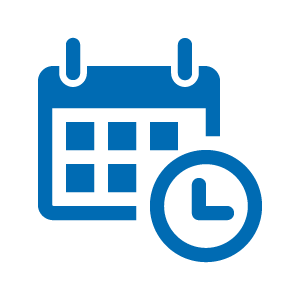Panic attacks and panic disorder
A panic attack is a short-term, acute and severe state of fear or anxiety. Panic often starts with unpleasant physical sensations which are interpreted as catastrophic. Panic attacks involve a number of symptoms caused by activation of the sympathetic nervous system such as palpitations, shortness of breath, chest pain, sweating, tremor, nausea, numbness and a feeling of choking or strangulation. The role of the sympathetic nervous system is to prepare us for acting in threatening situations that require fight or flight. In the case of a panic attack, this is a false alarm, meaning that our nervous system reacts in the absence of a real threat. Typical features of a panic attack are fear of death, attack of illness, losing your mind or losing control, and feeling unreal.
Panic attacks are quite common: approximately one in five people experience one at some point in their lives. When panic attacks happen over and over again and interfere with daily life, this is called panic disorder. Approximately 1% to 3% of adults are affected by panic disorder during their lives. Panic disorder usually involves a fear of new panic attacks. This adds to the stress experienced, thus further predisposing the person to new attacks. Many people who experience panic attacks react to the fear of new attacks by avoiding situations where they have had an attack, such as public spaces or social situations.
Panic attacks are completely harmless as such, but they often involve fear that others might notice the attack or that it will never end. There may also be a fear of fainting, choking, losing your mind or losing control. These fears tend to worsen the symptoms of panic.
Self-management of panic attacks and panic disorder
- Remind yourself that the symptoms of panic are completely harmless. Being aware of their harmless nature helps you stay calmer during a panic attack.
- Remember that many unpleasant bodily symptoms associated with panic attacks such as numbness, pins and needles and light-headedness are usually caused by hyperventilation. This means that it’s important to calm down your breathing even if you feel like you’re not getting enough air.
- Try to recognize and question the catastrophic misinterpretations that maintain panic symptoms.
- Be careful not to start avoiding the situations associated with panic attacks as these can impose restrictions on your life.
- Relaxation exercises and regular exercise may reduce the number of panic attacks.
- Avoid caffeinated drinks and intoxicants, as they increase your susceptibility to panic attacks.
- Stress predisposes you to panic attacks, so remember to get enough rest and find methods of stress management that are suitable for you.
When should you seek treatment?
As panic symptoms are very physical, people often seek treatment due to fear of a physical illness. You should see a healthcare professional if you have panic attacks repeatedly, if you have started to fear new attacks, and if you have noticed that they restrict your life.
The healthcare professional can help you by establishing that the cause of your symptoms is a panic attack and, if necessary, by starting appropriate treatment for panic disorder. They can also check whether you have any other mental health problems that are often associated with panic attacks, such as symptoms of depression and anxiety or substance abuse.
Treatment of panic disorder
Panic disorder can be treated with medication and/or psychotherapy. The goal of psychotherapy is to end avoidance, understand the symptoms and stop the vicious circle maintaining the panic symptoms by modifying your thought patterns and harmful behavioural patterns.
Group psychotherapy and online therapy are also available. Medication and psychotherapy are equally effective in the treatment of panic disorder, but a combination of both is more effective than either of them alone.
Information sources: Duodecim Terveyskirjasto, Mielenterveystalo.fi (Mentalhub.fi)
FSHS Psychologist / 2 May 2023
Service options

